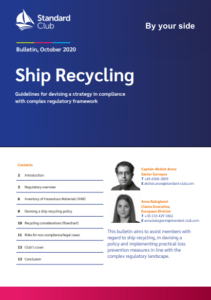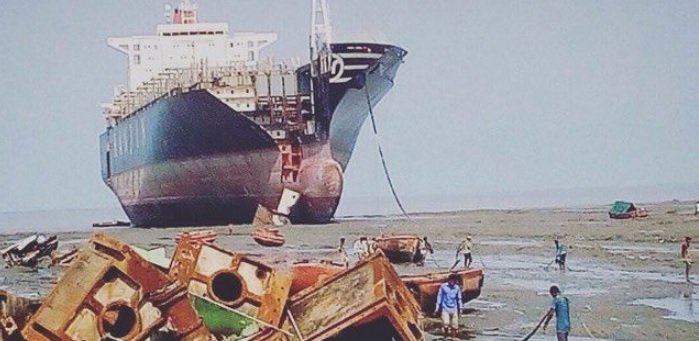The Standard Club discussed the importance of ship recycling, referring to the challenges that the industry faces, as well as the regulations that exist.
Ship recycling activity, like any other industry, is dependent on supply and demand. Generally, ships reach their ‘end-of-life’ when their second-hand sale value for further trading drops below their recycling value.
This may happen due to the ship’s condition deteriorating with increasing age which may necessitate uneconomical repairs, to the demand for ships being lower than the available supply or to specific regulatory requirements.
The Club notes that similar to other sectors, COVID-19 impacted ship recycling operations, as according to the quarterly updates received from the NGO Shipbreaking Platform, 166 ships were demolished in the first quarter of 2020, which reduced to 98 ships in the second quarter as several recycling yards were closed due to the Covid-19 pandemic. As the restrictions are being gradually eased, operations at the demolition yards are steadily resuming.
In light of the pandemic and the challenges the sector delt with, BIMCO and other shipping organisations sent a joint industry letter to the European Commission (EC) requesting a time-limited implementation or grace period to enable shipping companies to make up for lost time caused by Covid-19 restrictions and interruptions.

Yet, BIMCO adds that if the 31 December 2020 deadline cannot be met, the development of IHMs on the oldest ships first. Old ships are in general more likely to be recycled and such a risk-based planning will demonstrate how shipowners are working proactively in accordance with the spirit of the EU-SRR.
On the demand side, the price of steel and the cost of ship-breaking are the most prominent factors. The cost of ship-breaking varies from country to country, depending on labour costs and the types of regulations on workplace safety and the environmental impact that have been implemented in that specific country.
Explore more by clicking herebelow































































